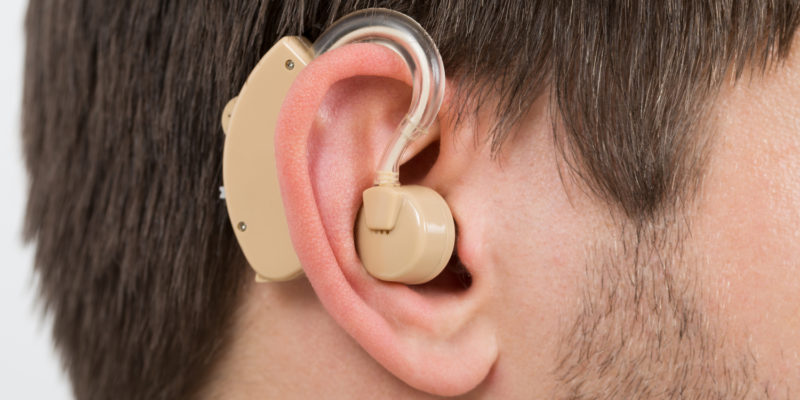It can take a while to get used to your new hearing aids, especially if you’ve never worn them before. To help make this process easier, we’ve put together a basic guide:
Step 1: Read the Manual
The manual will tell you how to use this particular model and give you additional information on any special functions you should know about.
Step 2: Find Your Fit
Once you’re acquainted with the functionality and have inserted a battery into your hearing aid, it’s time to try them/it on!
Hearing aids are only useful when in the correct ear – so make sure to check for markers. Some indicate right and left with the letters ‘L’ and ‘R’ while others use colors like red for the right ear and blue for the left ear.
Place the ear-dome piece into the ear canal and the hearing aid behind your ear. Insert and remove your hearing aids a few times to ensure you are comfortable with the fit. Once you’ve done that, all you have to do is flip the switch and enjoy improved hearing!
Step 3: Get Familiar with The Settings
Some hearing aids allow you to save your preferences while others automatically adjust to the correct setting for your environment. If you can customize your settings, find out how to adjust the volume and other settings based on your location or situation to ensure the best hearing possible.
Pointers for First-Time Users
There’s a learning curve when it comes to using a hearing aid. As with any new technology, it may take a while for you to figure out how to get the best results from yours.
Don’t panic if your hearing aid does not work at first, try replacing the battery before turning to more drastic troubleshooting measures. If you bought your aids with a warranty, don’t hesitate to contact the manufacturer.
You might also notice some other changes, including an excess of earwax buildup – this is normal and not a cause for concern. However, consult your physician as soon as possible if you come across the presence of blood or fluid in your ears, experience dizziness, fluctuations of your “normal” hearing levels, and pain or ringing in your ears. Hearing aids are meant to help, not hurt, and any continued discomfort should be addressed.



















Comments